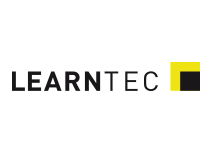Getting young girls interested in science – and female teachers too
LEARNTEC 2025: Interview with Prof. Dr. Uta Hauck-Thum on Minti, the MINT Cluster Munich, and female empowerment at elementary school
Female mathematicians, engineers, computer scientists, physicists, electronics technicians - women are still underrepresented in STEM professions. However, the opposite is true for primary school teaching. In an interview with Prof. Dr. Uta Hauck-Thum, Professor of Primary School Education and Didactics at Ludwig-Maximilians-Universität München, we talked about Minti, the STEM cluster launched in Munich in 2024, which is not only committed to discovering and promoting STEM talents in young girls, but also to raising awareness of STEM topics among prospective female teachers.

What motivated you to get involved in the “Minti” STEM cluster and what excites you personally about the idea and the topic of female empowerment in elementary school?
Prof. Dr. Uta Hauck-Thum: One thing that concerns me is the fact that girls and boys of primary school age show a similar interest in STEM subjects, but that this interest decreases significantly for girls over the years, while it increases for boys. As a result, girls and certain ethnic groups, regardless of gender, show less interest from secondary school onwards, especially in the areas of mathematics, computer science and technology. The situation on the labor market is also developing accordingly. Germany is currently not sufficiently successful in providing all young people, regardless of gender, origin and educational background, with educational opportunities that help to increase interest, participation and performance in STEM subjects.
Secondly, my more than 90 percent female elementary school teaching students are not necessarily role models in the STEM field. They are trained at a very low level across the board in STEM subjects, which has an impact on the design of lessons in these subjects.
We want to tackle this. The MINT cluster Minti – Female Empowerment Primary School (www.minti-cluster.com), which is funded by the Federal Ministry of Education and Research (BMBF), aims to design and implement transformative teaching and learning settings in order to get girls in particular interested in STEM subjects at elementary school and to raise and strengthen awareness of their central importance as role models in the STEM field among the predominantly male students during their studies.
How important is networking with extracurricular STEM actors and stakeholders and what role do parents and schools play in the overall concept, i.e. how can they contribute to the implementation and visibility of STEM offerings?
Prof. Dr. Uta Hauck-Thum: Extracurricular labs and makerspaces already offer a wide range of STEM education programs that are explicitly aimed at children and their parents. However, these are mostly selective and are rarely used, especially by parents with a low level of education. The sustainable networking of extracurricular learning venues with schools can help to involve parents who are educationally disadvantaged more closely in the structure of offers. Parents are important companions for their children on their path into professional life. However, not all parents have the same resources to optimally support their children. This is why there is a need for services that help to sensitize parents to the importance of supporting girls and boys in their learning development, especially in the STEM fields.
The Minti-Cluster addresses educationally disadvantaged children via so-called Minti-Clubs at schools but also offers extracurricular activities for children and parents that can be attended together. Schools enter into sustainable educational partnerships with extracurricular places of learning and open up together in order to provide children and parents with the best possible support on their educational path.
What challenges do you face in raising awareness of STEM subjects among female students - and how can these be overcome? Do you think there needs to be a rethink in teacher training? If so, what should this look like in concrete terms?
Prof. Dr. Uta Hauck-Thum: What I observe in some female students is the phenomenon of “math anxiety”, which also manifests itself in the fields of computer science and physics. Math anxiety manifests itself in discomfort and nervousness when thinking about or doing math. Fear of teaching the subject can also develop. This has a negative impact on the design of lessons, as the study by Anne Frenzel et al. from 2016 showed. Affected individuals are observed to have highly structured and less cognitively demanding lessons. In addition, there is a high proportion of frontal teaching phases with little communicative participation. This style of teaching has a negative impact on the acquisition of skills, particularly in girls during their primary school years.
In my opinion, students should therefore be allowed to have more experiences during their teacher training that have a positive impact on their own attitudes towards STEM subjects. This also includes designing stimulating teaching and learning processes in cooperation with extracurricular learning partners that encourage exploration and discovery. As a result, young and old develop an open attitude towards technical developments and openness to technology through self-determination experiences and acquire the skills they need to meet current and future challenges creatively and critically.
*****
At LEARNTEC, Prof. Dr. Uta Hauck-Thum will also be giving several presentations on this topic - including on May 6 at 10 a.m. on “The transformative power of STEM education - Minti” and on May 8 at 11:30 a.m. on “Shaping school transformation together”.


